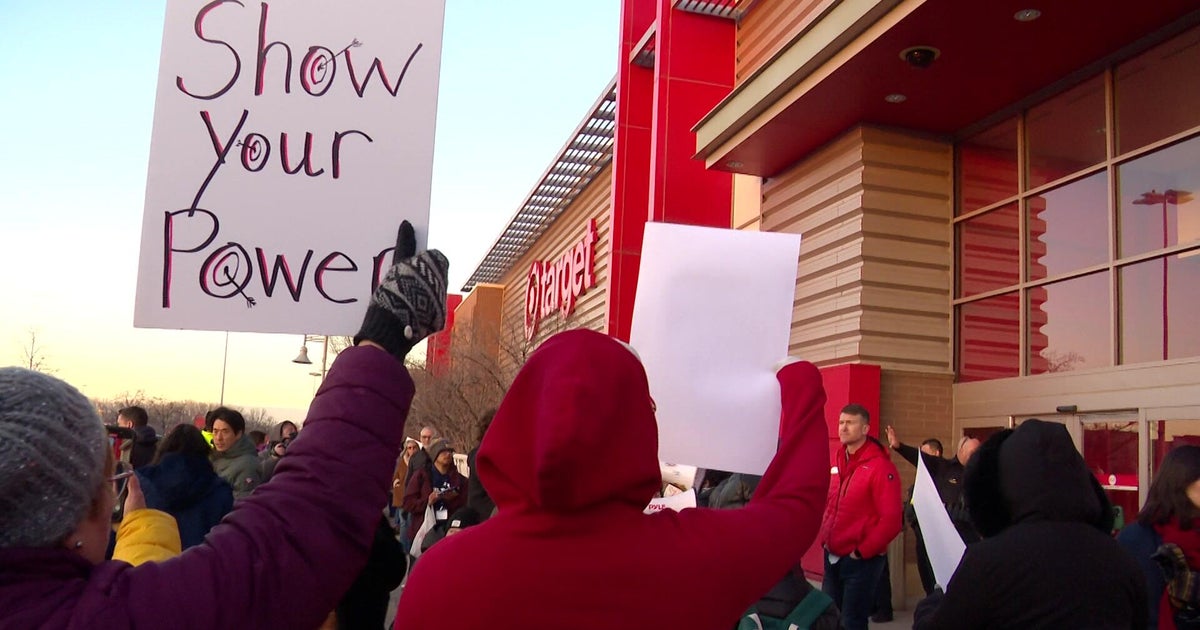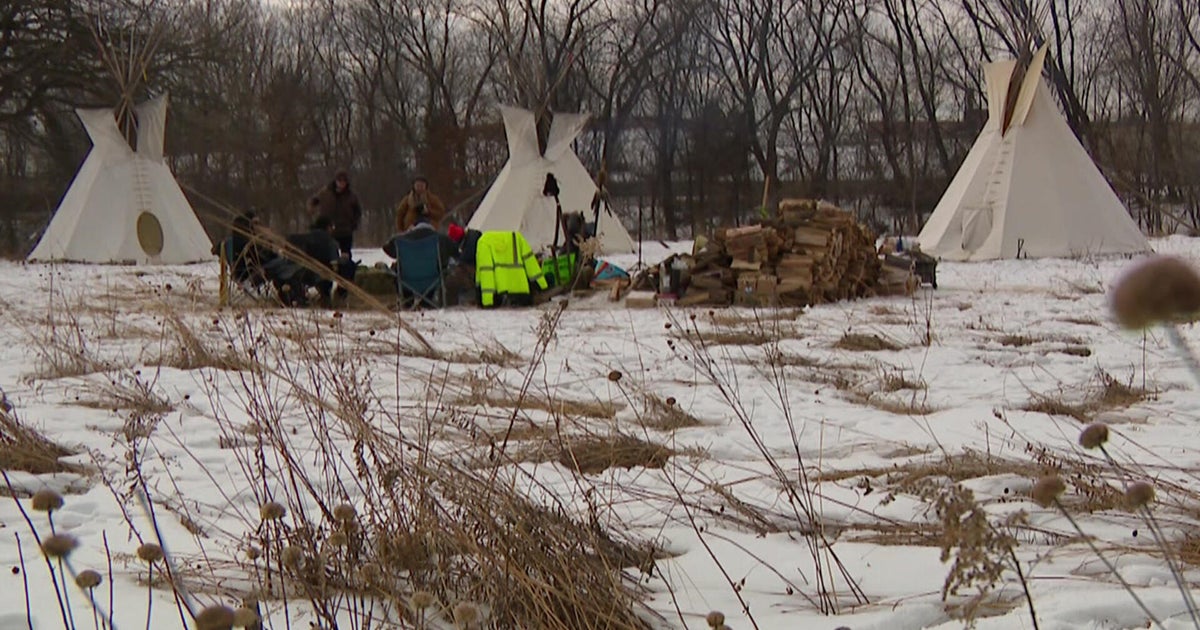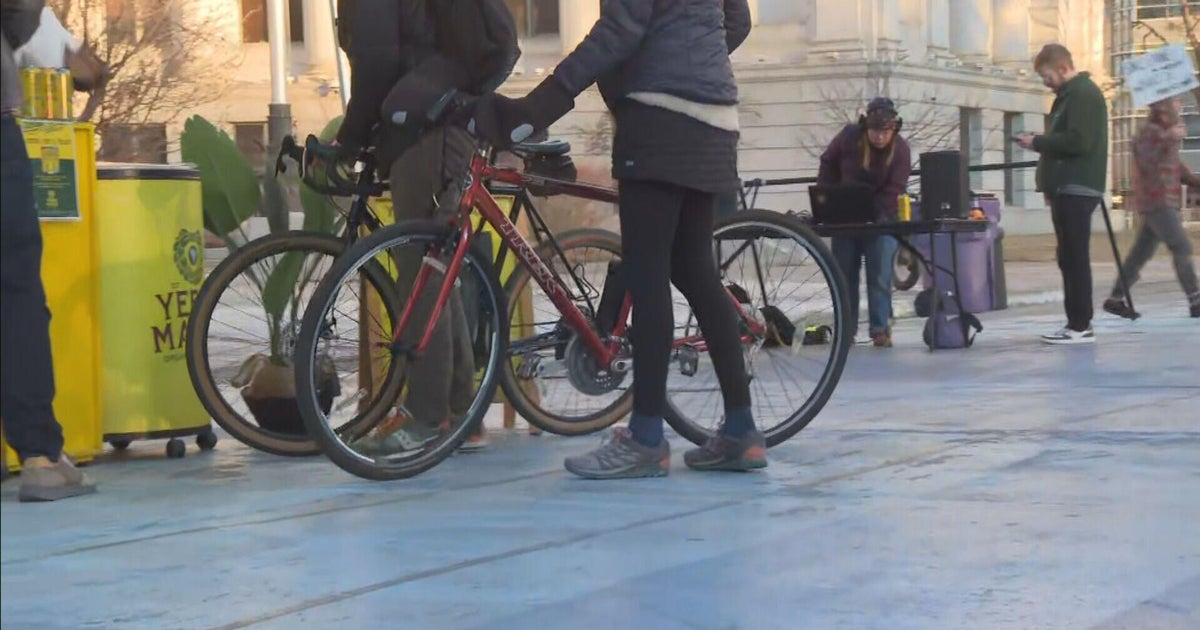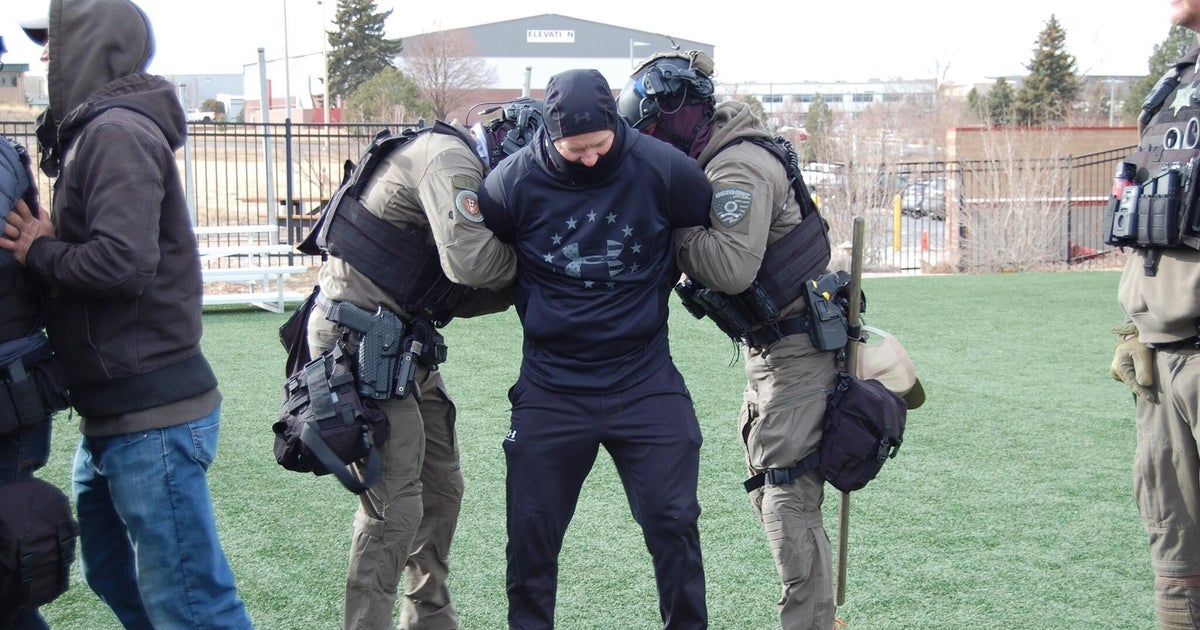Anti-Pipeline Protest Grows In North Dakota
NEAR THE STANDING ROCK SIOUX RESERVATION, N.D. (AP) — Chekota American Horse and his 8-month-old son traveled a few miles from their home on the nearby Sioux reservation to join the growing protest against a $3.8 billion oil pipeline that's going into the ground fast. Mekasi Horinek, a Ponca, traveled from Oklahoma. Carlos Castaneda, who is Sioux and Ute, came from Denver.
"I came here because this is about our water and about his future," American Horse said of his son, Caden, who on Friday gazed wide-eyed at riders on war-painted horses. Nearby, as bulldozers and backhoes rumbled, tribal members from across the nation chanted prayers, burned sacred herbs and hoisted upside-down American flags.
The months-long "spirit camp" protest by the Standing Rock Sioux against the Dakota Access pipeline — projected by the end of the year to be carrying nearly a half-million barrels of crude daily from North Dakota's rich Bakken oil fields more than 1,000 miles to Illinois — transformed this week from a quiet action to something more active, with about 100 who gathered Friday and with at least 18 people arrested in the construction zone Thursday and Friday, including the tribal chairman.
Tribal members and their supporters are vowing to continue protests and acts of civil disobedience, and the tribe, whose reservation straddles the North Dakota-South Dakota border, also is seeking a court order to block the pipeline's construction, which it says would disturb sacred sites and have a deleterious effect on the environment.
Castaneda, 35, said his conscience called him to travel from Colorado to the protest at the confluence of the Cannonball and Missouri rivers.
"All the way around, this pipeline is wrong. My business is on hold and I will be out here for as long as it takes," he said of his tiling business.
Dallas-based Energy Transfer Partners announced the four-state pipeline in 2014, days after North Dakota Republican Gov. Jack Dalrymple urged industry and government officials to build more pipelines to keep pace with the state's prolific oil production, saying that would reduce truck and train traffic, curb natural gas flaring and create more markets for the state's oil and gas.
In North Dakota, the pipeline would cross beneath the Little Missouri River once and the Missouri River twice. The company said the pipeline would include safeguards such as leak detection equipment; workers monitoring the pipeline remotely in Texas could close valves within three minutes if a breach is detected.
The Standing Rock Sioux Tribe late last month sued federal regulators for approving the pipeline, which would be the largest-capacity pipeline yet in North Dakota. The tribe argues the pipeline would disturb sacred sites and affect drinking water for the thousands of residents on the reservation and the millions who rely on it downstream.
"This water is just not for us," said Brave Heart, a 64-year-old Vietnam veteran and a Lakota Sioux from Fort Peck in eastern Montana. "It's for everyone and future generations."
Armed security guards hired by the company stood watch over construction crews on Wednesday. The next day — the same day "Divergent" actress Shailene Woodley joined the protests — the gathering took a turn, as some people entered a zone established for workers' safety, Morton County Sheriff Kyle Kirchmeier said.
About 20 North Dakota Highway Patrol troopers and 10 deputies from his department, one-third of the county's force, stood by to monitor the protests Friday afternoon.
Horinek, one of the protest organizers, said he was grateful for the troopers and deputies.
"We need the police here," said Horinek, who said he feared the company's guards. "We're scared that they will get scared and shoot somebody."
Castaneda, like other protesters, hoped the pipeline could be stopped in court. But he said he and others would "do whatever it takes" to stop it.
"Violence? I have no comment," he said. "But if people get violent with us, we will do whatever it takes to protect our people and our water."
Sixteen-year-old Satara Red Tomahawk, from Standing Rock, said she would remain at the protest site until she has to go back to school next week.
"I really don't like this," she said of the pipeline. "I'm really proud of our people standing together as one because if our water is polluted, it's going to hurt everyone."
(© Copyright 2016 The Associated Press. All Rights Reserved. This material may not be published, broadcast, rewritten or redistributed.)







